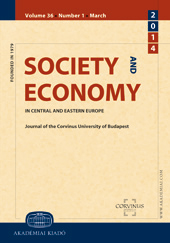Economic Aspects of Biosimilar Competition in Hungary the Treatment of Rheumatic Disorders
Economic Aspects of Biosimilar Competition in Hungary the Treatment of Rheumatic Disorders
Author(s): Zsombor ZrubkaSubject(s): National Economy, Health and medicine and law, Economic development, Tourism
Published by: Akadémiai Kiadó
Keywords: biosimilar; rheumatology; Hungary;
Summary/Abstract: Biologicals are the fastest growing segment of the global pharmaceutical market, reaching 199 billion USD sales per year with 9.8% 10-year compound annual growth rate (CAGR). Being less costly, yet equally efficacious and safe alternatives to originator reference products, biosimilars drive competition, promise budget savings and the opportunity for better patient-access. This paper examines the key factors and players of biosimilar competition in rheumatology in Hungary. Due to the scarcity of data, the total yearly expenditure on biologicals could only be estimated from different data sources. In 2015 the estimated expenditure on biologicals was around 100 billion HUF. In rheumatology indications the expenditure on biologicals was 10 (8.9-11.2) billion HUF, and the average annual net treatment cost was 1.2 (1.06-1.34) million HUF / per patient / year. The magnitude of societal benefits in terms of budget savings and health gains may result from the joint effort of policy makers, funders, physicians and patients. In rheumatology indications, biosimilar utilization could be increased by a policy supporting physician-driven interchange of the reference product to biosimilars. Also, creating a physician incentive system for broader use should be considered in order to realize the full economic advantages of biosimilars and contribute to sustainable healthcare financing in Hungary.
Journal: Society and Economy. In Central and Eastern Europe ǀ Journal of the Corvinus University of Budapest
- Issue Year: 39/2017
- Issue No: 2
- Page Range: 271-290
- Page Count: 20
- Language: English

